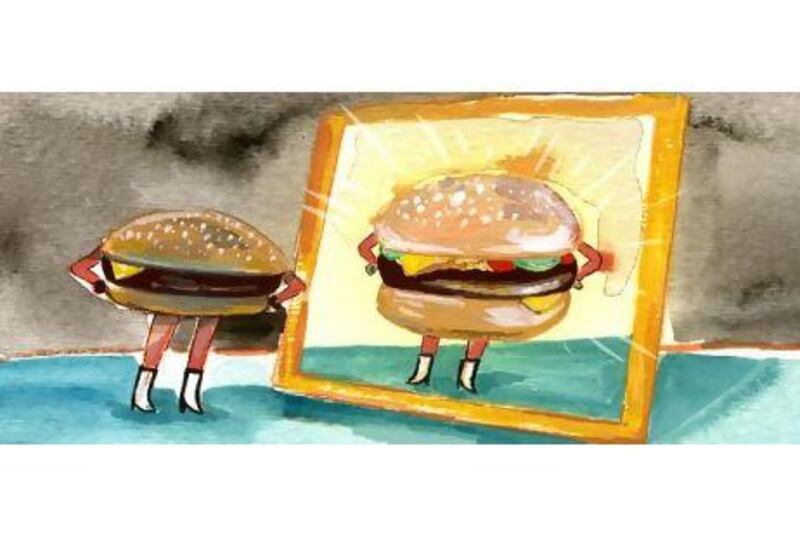The unending tide of negative publicity that continually engulfs McDonald's seemingly cannot be halted. The burger giants' sponsorship of the upcoming London Olympics and the recent unveiling of its largest-ever restaurant within the shadow of the Games' main stadium has been roundly criticised by medical professionals, who believe the event should not be associated with unhealthy food.
And even its attempts to make the company appear more open - such as a current online marketing campaign to explain why the burger bought from your neighbourhood outlet never looks as luscious as the one adorning an advertising hoarding - are still attracting censure.
This concerns a YouTube video in which Hope Bagozzi, director of marketing for Mcdonald's Canada, presents a behind-the-scenes look at one of its advertising photo shoots.
We learn that its an intensive process, in which a team of stylists toil for hours beautifying the sandwich. Using the same ingredients as a store-purchased cheeseburger, they melt the cheese with a blowtorch, inject mustard and ketchup with syringes, before digitally enhancing colours and airbrushing out blemishes on the final shot on a computer. The end result is a cheeseburger so enticing it invariably provokes a craving to consume one. Somewhat predictably, the company has taken a whole new barrage of flak for having the audacity to want to make its food look more desirable. Isn't that what advertising is supposed to be?
Some commentators have concluded that in the face of such promotional techniques, it's no wonder so many of us are enslaved to cholesterol-crammed junk. Similar sentiments are also being expressed in a BBC TV documentary series entitled The Men Who Made Us Fat that is currently being aired in the UK. Its main contention is our ever-increasing waistbands are solely the fault of the US food industry's major players in the 1970s.
The first of these key figures is Earl Butz. While serving as agriculture secretary in Richard Nixon's government, Butz was tasked with appeasing popular dissent at soaring food prices. To do so, he instructed farmers to increase crop output, or "grow fencerow to fencerow" as he put it.
The resultant vast surpluses of corn were turned into high-fructose corn syrup, which, due to it being a third of the cost of sugar, had by the 1980s become the sweetener of choice for both the Pepsi and Coca-Cola corporations. Scientists have since found that fructose neutralises leptin, a hormone that tells us when we're full.
And, the reason why these beverages are now served in vat-sized vessels is down to a canny marketeer called David Wallerstein.
Back in the 1950s, Wallerstein was working for a Chicago cinema chain, when he first noticed that patrons did not want to appear greedy in public and would rather pay more for a giant box of popcorn than buy two smaller sized cartons.
Later taking up the job as a McDonald's marketing executive, he brought his ideas on portion sizes with him and the rest is supersized history.
So, the overriding sentiment is that responsibility for what we eat does not rest with the consumer, but with these multinationals that cynically exploit our innate desire for sugar- and fat-laden goods.
"Overeating is not down to greed," one expert contends in the documentary. "The food industry should share partial blame for the obesity epidemic."
Obviously, from the heart of the Olympic Village to your local food court, McDonald's and its ilk are now inescapable parts of the global landscape.
Nevertheless, is it really burger beauticians and Photoshop wizards, or the likes of Butz and Wellerstein who are responsible for this emerging public health crisis?
Of course not. The vast majority of people are overweight because of lack of exercise and gluttony. While it's tempting to seek excuses elsewhere, lifestyle choices are the real reason why so many of us are hurtling towards an obesity-induced early grave.






